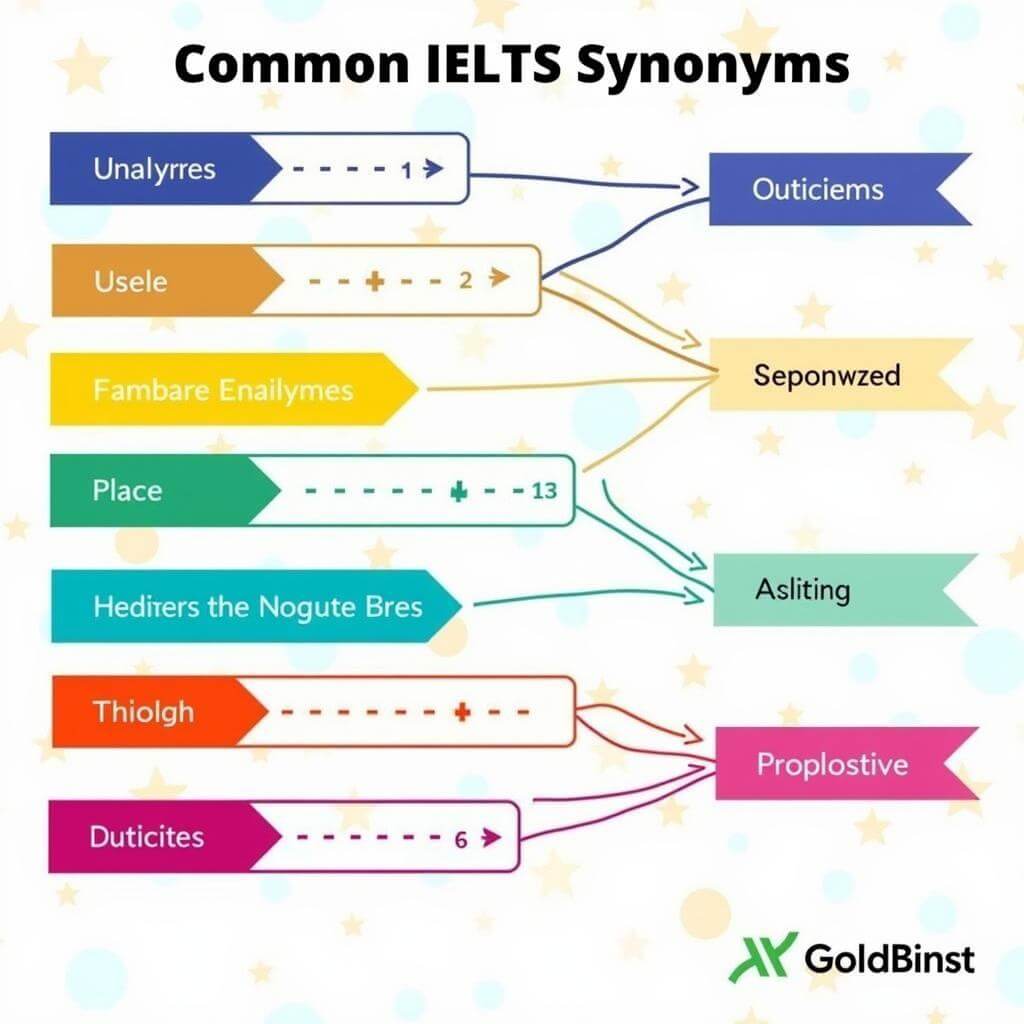Improving recognition of synonyms is a crucial skill for IELTS test-takers, particularly in the Listening and Reading sections. This ability allows candidates to understand and connect different words and phrases with similar meanings, enhancing their overall comprehension and performance. Let’s explore how to develop this essential skill and apply it effectively in the IELTS exam.
Understanding Synonyms in the IELTS Context
Synonyms are words or phrases that have the same or nearly the same meaning as another word or phrase. In IELTS, recognizing synonyms is vital because questions often paraphrase the information presented in the audio or text using different vocabulary.
Types of Synonyms in IELTS
- Single-word synonyms (e.g., “big” and “large”)
- Phrasal synonyms (e.g., “to give up” and “to abandon”)
- Contextual synonyms (words that are synonymous only in specific contexts)
- Register-based synonyms (formal vs. informal equivalents)
How to improve quick decision-making in IELTS listening can significantly enhance your ability to recognize synonyms under time pressure.
Examples of Common Synonyms in IELTS
Here are some examples of synonyms frequently encountered in IELTS:
- Increase – Rise – Grow
- Decrease – Decline – Reduce
- Important – Significant – Crucial
- Affect – Influence – Impact
- Advantage – Benefit – Merit
- Disadvantage – Drawback – Limitation
- Solve – Resolve – Address
- Argue – Debate – Dispute
- Predict – Forecast – Anticipate
- Sufficient – Adequate – Enough

Applying Synonym Recognition in IELTS Listening
In the IELTS Listening test, synonym recognition is crucial for accurately answering questions. Here’s how to apply this skill:
- Anticipate paraphrasing: Expect the audio to use different words than those in the questions.
- Focus on meaning: Listen for ideas rather than specific words.
- Be aware of contextual synonyms: Understand how words can have similar meanings in specific situations.
- Practice active listening: Train yourself to quickly connect synonymous phrases while listening.
How to choose flooring materials ielts listening answers provides a practical example of how synonym recognition is applied in a specific IELTS Listening task.
Enhancing Synonym Recognition in IELTS Reading
For the IELTS Reading section, improving your synonym recognition can significantly boost your performance:
- Skim for context: Quickly read the passage to understand the overall meaning.
- Identify key terms: Locate important words in the questions and search for their synonyms in the text.
- Use contextual clues: Understand how the surrounding text affects word meanings.
- Practice paraphrasing: Regularly rewrite sentences using different words to improve your synonym awareness.
Common Mistakes in Synonym Recognition
Avoid these pitfalls when dealing with synonyms in IELTS:
- Assuming all synonyms are interchangeable in every context
- Overlooking subtle differences in meaning between similar words
- Focusing too much on individual words rather than overall meaning
- Neglecting to consider the tone and register of synonyms
- Failing to recognize phrasal synonyms or idiomatic expressions
Strategies for Improving Synonym Recognition
To enhance your synonym recognition skills for IELTS:
- Build your vocabulary: Regularly learn new words and their synonyms.
- Use a thesaurus: Explore different ways to express the same idea.
- Read extensively: Expose yourself to various writing styles and contexts.
- Practice paraphrasing exercises: Rewrite sentences and paragraphs using different words.
- Study academic word lists: Familiarize yourself with common academic vocabulary and their synonyms.
- Use synonym games and apps: Engage in interactive learning to reinforce your skills.
- Analyze IELTS practice materials: Pay attention to how synonyms are used in official IELTS questions and answers.
Incorporating Synonym Recognition into Your IELTS Preparation
To effectively integrate synonym recognition into your IELTS study routine:
- Set aside time for vocabulary building: Dedicate 15-30 minutes daily to learning new words and their synonyms.
- Use flashcards: Create cards with words on one side and their synonyms on the other.
- Practice with past IELTS papers: Identify synonyms used in questions and passages.
- Listen to academic podcasts: Train your ear to recognize synonymous phrases in spoken English.
- Join study groups: Discuss and share synonym knowledge with other IELTS candidates.
By consistently applying these strategies and focusing on improving your synonym recognition, you’ll be better equipped to handle the challenges of the IELTS test. Remember, this skill not only helps in the exam but also enhances your overall English language proficiency, which is valuable for academic and professional success.
In conclusion, mastering synonym recognition is a fundamental aspect of IELTS preparation. It requires consistent practice and a strategic approach. By incorporating the techniques and exercises mentioned above into your study routine, you’ll significantly improve your ability to identify and understand synonyms, leading to better performance across all sections of the IELTS test. Keep practicing, stay curious about language, and watch your IELTS scores improve as your synonym recognition skills sharpen.